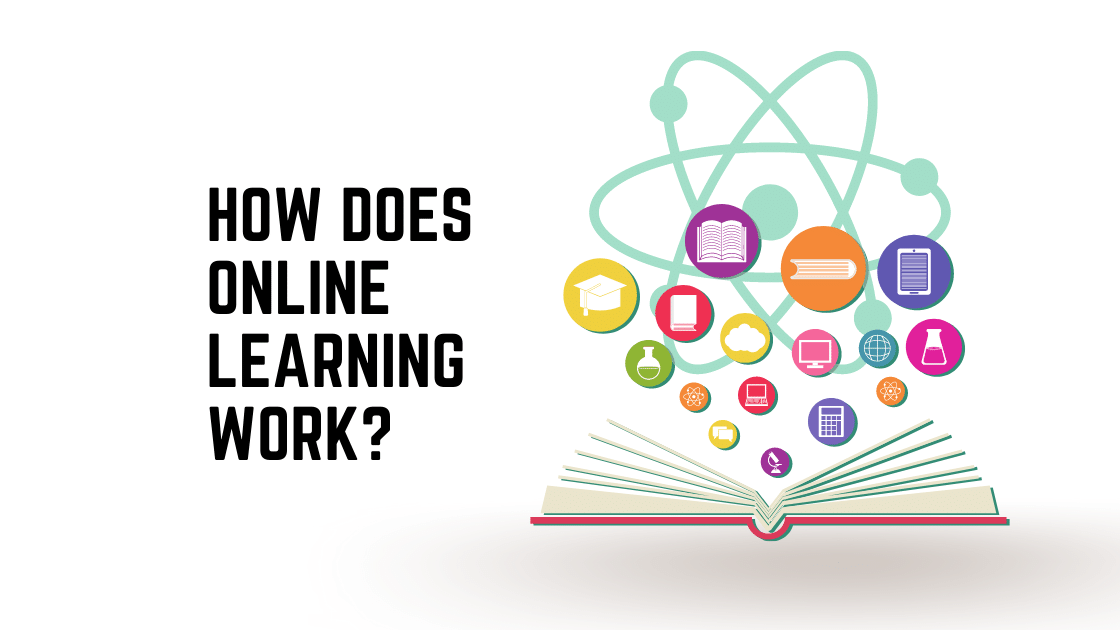In recent years, online learning is steadily growing in popularity. More people are now asking how online learning works. Online courses in everything, from web design and knitting to foreign languages, have become the norm for anyone aged 8-88. The landscape of online education was forever changed by the 2020 outbreak of the pandemic. In February 2021, more than 220 million students around the world were still affected by traditional classroom education’s partial or complete closure.
Remote learning is a necessity. With that, the internet has made it possible to acquire knowledge in a significant way.
How does online learning work?
Online Learning
There are many options available depending on what type of online education you want and which institution offers it.
- Pre-recorded lessons that you can view online at your own pace
- Attending live classes via a group call, or
- Combination of both
The online class is more flexible than traditional learning. Online classes allow you to study from your own home and take notes. You can also watch lectures when you have time and go as slow or fast as you like, with the exception of some programs that require you to adhere to certain deadlines.
Virtual learning is a great way to learn in a virtual setting, even though you are not physically near others and still have the opportunity to improve your education.
Interaction in Online Learning
Online degrees are not limited to textbooks and lecture notes. There are many resources that you can use, including:
- Slides
- Quizzes
- Audio or video recordings of lectures
- Forum discussion
- Journals
- Live Q&A sessions for your teachers
- Interviews and many more
The type of resources that you have access to will depend on which institution you signed up for the online learning program. Some provide all of these options, while others offer a limited number of resources. Some schools may require that you order printed textbooks. However, this is no longer the norm.
Depending on the program, students can socialize online or in person. Even though they may be taking online classes, some institutions require students to be present on campus. Students can talk to each other via discussion boards, phone, email, video or voice calls. This is especially useful for group projects or social media.
An online learner will typically have access to the same resources , if any, as a traditional student. As an official student, you will have access to the digital library and student union as well as a learning management system (such Blackboard).
Knowledge Assessments for Online Learning
There are times when teachers need to assess students’ knowledge. This is a common occurrence in any course. Exams or testing are different than traditional pencil and paper exams or oral exams in front of stern professors.
The instructor can assess what you have learned during the course in one of these ways:
- Individual Assignment
Online programs are reliant on individual assignments. They give their students a topic, word count, deadline, and a time frame. The instructor asks students to create a structure argument about the topic, such as an essay.
- Journal Activity
Online learning is unique in that journal entries can be kept. Although they are not graded, they allow instructors to keep track of how students do in the course. Students are required to write an online journal entry every other week, where they describe what they have learned and how they plan to use it in the future.
- Academic Discussion
Academic discussion is a type of debate. Your professor will assign you a topic that you must research, just like an assignment. Each student must demonstrate their knowledge and understanding on the topic. They will engage in a debate, where they must present their ideas and arguments to the class. Although it sounds daunting, academic discussions can be quite fun and provide an excellent opportunity to grow intellectually and academically.
- Exam
Virtual schools also have their own exam. Technically, however, teachers can’t supervise the exam unless they are using exam software or other web tools. Virtual classes have open-book exams.
This might seem like a way to cheat and get higher grades online than in traditional classrooms. Online schools often have sophisticated ways to check for plagiarism and other tricks that students may use to pass exams without much effort. Distance learning is no easier than traditional classes.
Conclusion
Online Learning is a welcome option in this uncertain world, where many people are unable to continue their education due to a variety of reasons. Online learning allows anyone to study any topic in any part of the world. Students can learn at their own pace, connect with other students and chat online to get degrees just like they would in person.
Virtual schools offer many resources that can help students understand the course material. You can access recorded lectures or live lectures, journals and discussion boards, eBooks, as well as eBooks.
There are four main ways to assess knowledge: individual assignments, journal activity, exams and academic discussions. Different professors may have their own ways of encouraging students to succeed in virtual classes and challenging them.










Leave a Reply